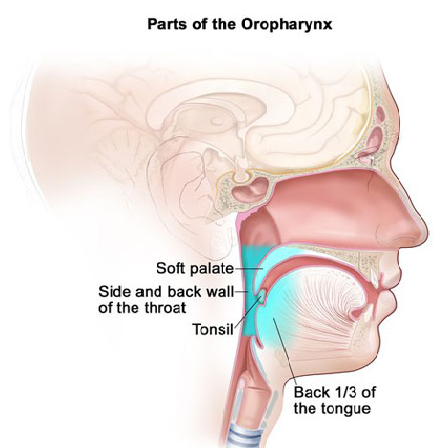SUMMARY: Lung cancer is the second most common cancer in both men and women and accounts for about 14% of all new cancers and 27% of all cancer deaths. The American Cancer Society estimates that for 2018 about 234,030 new cases of lung cancer will be diagnosed and over 154,050 patients will die of the disease. Lung cancer is the leading cause of cancer-related mortality in the United States. Non Small Cell Lung Cancer (NSCLC) accounts for approximately 85% of all lung cancers. Immunotherapy with PD-1 (Programmed cell Death 1) and PD-L1 (Programmed cell Death Ligand 1) inhibitors have demonstrated a clear survival benefit both as a single agent or in combination, compared with standard chemotherapy, in both treatment-naive and previously treated patients for advanced Non Small Cell Lung Cancer (NSCLC). It is now standard therapy for patients with lung cancer. Immuno-Oncology therapies unleash the T cells by blocking the Immune checkpoint proteins, thereby resulting in T cell proliferation, activation and a therapeutic response.
Patients with NSCLC often are treated with corticosteroids for a variety of reasons including fatigue, dyspnea, decreased appetite, and symptomatic brain metastases. Corticosteroids by virtue of their immunosuppressive properties can potentially effect on T-cell function and for this reason, use of these agents before the start of therapy with PD-(L)1 blockade has been a uniform exclusion criterion in clinical trials of Immune Checkpoint Blockade therapies. It is however becoming increasing clear that corticosteroids use for the management of immune-related adverse events do not seem to negatively impact outcomes. Nonetheless, there are presently no data regarding the impact of corticosteroid use at baseline, on the efficacy of Immune Checkpoint Inhibitors. In this publication, the authors evaluated the potential impact of systemic corticosteroids at the start of Immune Checkpoint Blockade, on the efficacy of PD-(L)1 inhibitors.
The authors in this study identified patients with advanced NSCLC who were treated with single-agent PD-(L)1 inhibitor (Pembrolizumab, Nivolumab, Atezolizumab, or Durvalumab) from two institutions – Memorial Sloan Kettering Cancer Center (N=455) and Gustave Roussy Cancer Center (N=185), between April 2011 to September 2017. Clinical and pharmacy records were reviewed to identify corticosteroid use at the time of beginning anti-PD-(L)1 therapy. Information on the use of corticosteroids within 30 days of the start of PD-(L)1 blockade, type of corticosteroid used, indication and route of administration were collected for the MSKCC cohort. Patient characteristics, including age, gender, histology, ECOG Performance Status, and smoking history were collected for all patients. Efficacy outcomes following treatment with PD-(L)1 inhibitors blockade was determined by local radiologists and all patients were followed up until death or data lock.
It was noted that 14% (N=90) of the 640 patients treated with single-agent PD-(L)1 inhibitor received 10 mg or more of prednisone daily at the start of the treatment with a PD-(L)1 inhibitor. The most common indications for treatment with corticosteroids were dyspnea or other respiratory symptoms (33%), fatigue (21%), and brain metastases (19%). Patient characteristics were well balanced between those who did or did not receive corticosteroids, with two exceptions – patients with poor performance status and history of brain metastases were more common in those who received corticosteroids.
In the pooled cohort of patients from both participating institutions, patients receiving baseline corticosteroids compared with patients not receiving corticosteroids experienced a lower Objective Response Rate (7% versus 18%) and worse Progression Free Survival and Overall Survival (P<0.001). The authors performed a multivariable analysis in the pooled cohort (N = 640), incorporating smoking history, performance status, history of brain metastases, and corticosteroid use (Prednisone 10 mg or more versus less than 10 mg), at the start of PD-(L)1 blockade. Prednisone use 10 mg or more was associated with worse Progression Free Survival (P=0.03) and Overall Survival (P<0.001). In the Memorial Sloan Kettering Center cohort of patients, (data unavailable for the Gustave Roussy Cancer Center cohort), patients who discontinued corticosteroids 1-30 days before starting PD-(L)1 blockade had intermediate Progression Free Survival and Overall Survival compared to those who received corticosteroids on the day of PD-(L)1 blockade initiation and those who received no corticosteroids within 30 days of the start of therapy.
The authors concluded that among patients with Non Small Cell Lung Cancer treated with PD-(L)1 blockade, baseline corticosteroid use of 10 mg or more of prednisone equivalent was associated with inferior outcomes. Clinicians should exercise caution and minimize the use, duration, and dose of corticosteroids if immunotherapy with PD-(L)1 blockade is a future consideration. Impact of Baseline Steroids on Efficacy of Programmed Cell Death-1 and Programmed Death-Ligand 1 Blockade in Patients With Non-Small-Cell Lung Cancer. Arbour KC, Mezquita L, Long N, et al. J Clin Oncol. 2018;36:2872-2878

